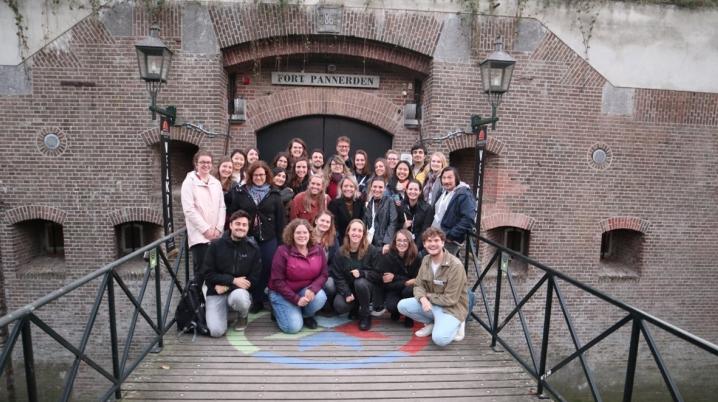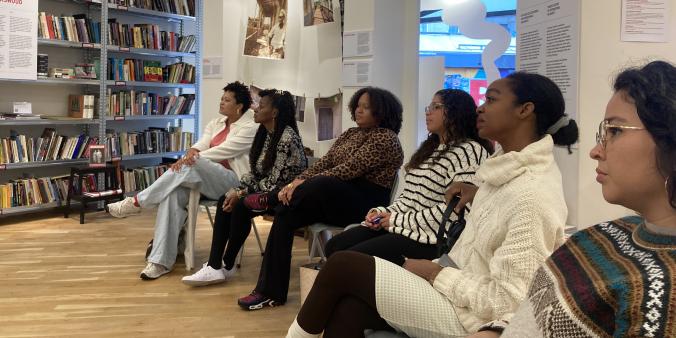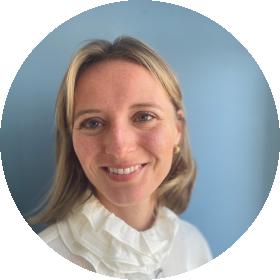
How do you celebrate Europe Day? A week after Liberation Day in the Netherlands, five days after the Day of the Restoration of the Latvian Independence and days after Polish Constitution Day, to name only a few national holidays in European member states, Europe Day takes place on 9 May. It is a day to celebrate peace and unity in Europe. On this day in 1950, the European Coal and Steel Community (ECSC) was founded, the predecessor of our current European Union. The proposal for the creation of the ECSC came from the French foreign minister Robert Schuman, who has since been seen as one of the founding fathers of Europe.
Europe and heritage
European collaboration has only increased since the Schuman Declaration, not only on the governmental level but on all levels, including the cultural sector. DutchCulture’s Europe + Heritage programme supports the Dutch heritage sector in knowledge exchange and collaborations with European partners. To celebrate Europe Day, we highlight a couple of successful projects that have recently been supported by DutchCulture.
The Future is Heritage
The Future is Heritage is an international network to support the position of young people in the heritage field. It facilitates international exchange between young people who are interested in heritage, students and established heritage professionals in Europe. Erfgoed Brabant, the Netherlands, initiated the Future is Heritage. In October 2021, the Future is Heritage field school took place in Arnhem, the Netherlands. DutchCulture supported this field school and the expansion of the results with a Support Grant. During the weekend, 45 attendees from 15 different -mostly European- countries followed the field school’s programme centred around four themes: heritage and tourism, inclusion, climate change and repurpose. The participants were mostly young professionals, but also students and more established professionals. Exchanging international and intergenerational experiences enabled participants to expand their knowledge and skills about heritage.
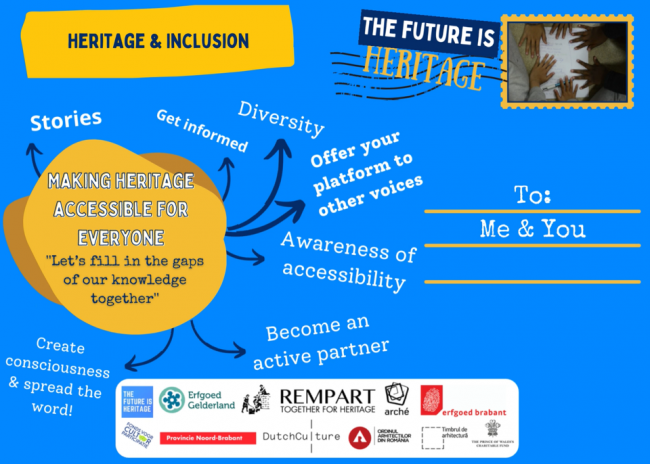
The attendees of the field school agreed on the importance of an active heritage community. Other topics that were discussed in great detail were the diversity of our history and its representation in heritage, emotions connected with heritage and physical accessibility. The results of the Future is Heritage field school were presented during the #EUregionsweek2021 and posted online (on the website of the Future is Heritage) in the form of digital postcards.
Following the field school, the Future is Heritage has developed new plans based on the outcomes and results of the programme. They wish to create a platform for heritage volunteers in the future. Creating opportunities for young heritage professionals was the central theme in a couple of talks, for example, a panel discussion organised by the European Student Association for Cultural Heritage and a research project of Europa Nostra.
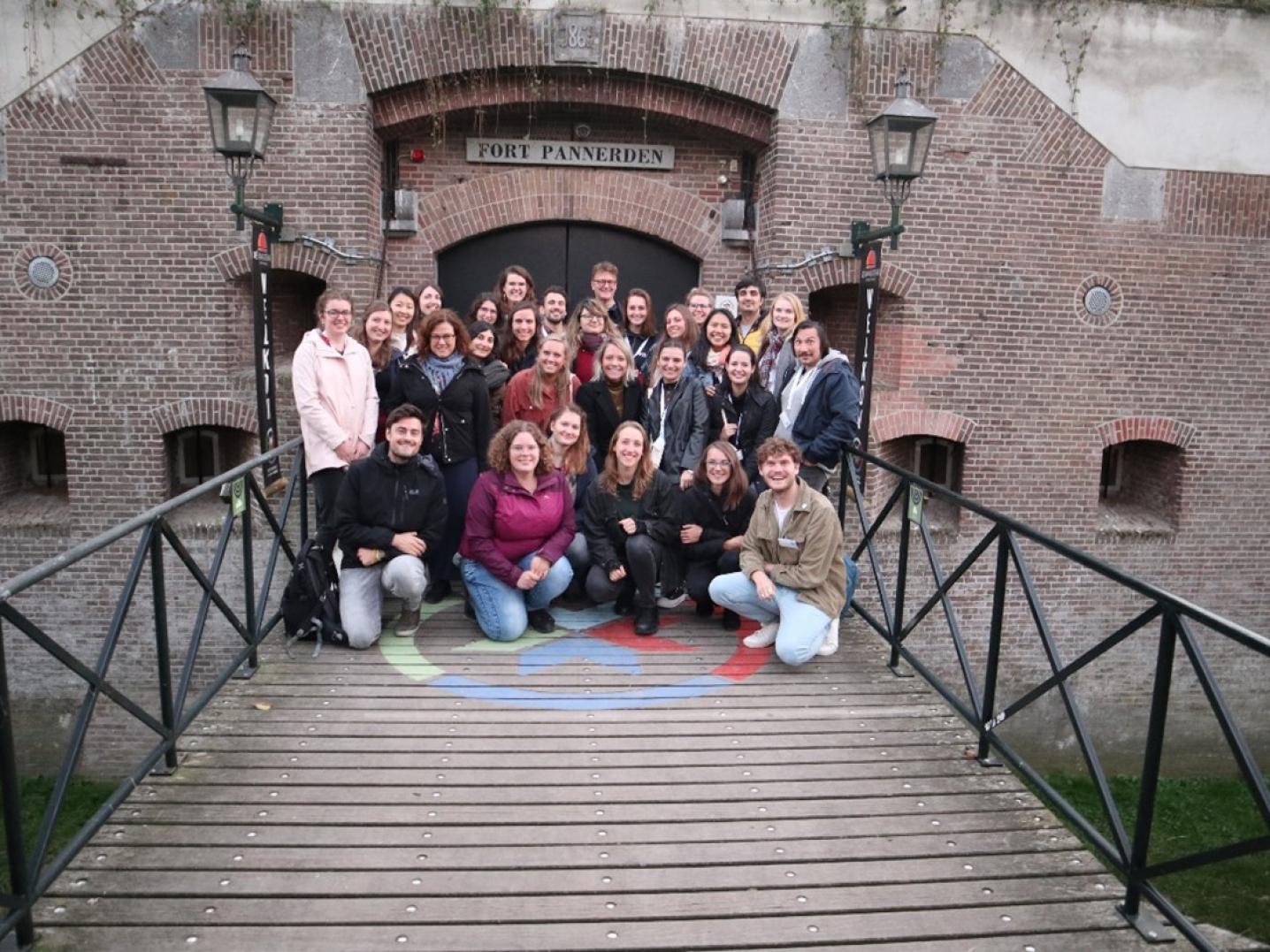
Pioneers of the Dutch Modern House
Iconic Houses is a worldwide network founded by Natascha Drabbe, owner of the iconic Van Schijndel House in Utrecht, the Netherlands. In September 2021, the sixth Iconic Houses conference took place, supported by DutchCulture's Support Grant. Due to restrictive measures because of the pandemic, the conference had to go online. Titled 'Pioneers of the Dutch Modern House', the conference focussed on the developments of the Dutch home in the 20th century an international perspective. Topics stretched from hygiene and health in the modern home to the home as a self-portrait: architects’ houses. Spread out over five days, the online modules consisted of a live-streamed lecture and Q&A. Every day, the meetings started with an ‘open mic’ for the attendees, to exchange news and ask each other questions about the management of their iconic houses, which are often their homes.
The speakers, as well as the audience of the conference, were very international, mostly European. The Iconic Houses network has members in 15 European countries. Speakers included Beatriz Colomina (Spain), professor of the History of Architecture at Princeton University, Gennaro Postiglione (Italy), professor in Interior Architecture at Politecnico di Milano and author of The Architect's Home, and Catherine de Zegher (Belgium), author of Women's work is never done.
Instead of the museum excursions that would have been part of the initial offline programme of the conference, a video series was developed about all 20 modern house museums in the Netherlands. After the conference, the video series remains accessible to all members of the Iconic Houses network and can also be used as educational materials by universities and academies.
Reactions from attendees to the conference were positive. “I attended the first three lectures and found the presentations concise and informative, and the speakers knowledgeable and lively,” one attendant said. One of the speakers complimented the organiser: “I really admire how you have realised this.”
International ICOMOS conference in Bulgaria
DutchCulture's Europe + Heritage travel grant enabled Tsjalling Wierdsma, project officer EU Urban Agenda and Heritage at the city council of Amsterdam and Federation Major Monuments, to go to the ICOMOS conference In Restauro: Post-War heritage of Art and Architecture in Central and Eastern Europe in July 2021. Attending the conference physically enabled him to meet his fellow members of the action group Integrated Approaches to Dissonant Heritage live for the first time. Furthermore, meeting a big group of international and renowned heritage professionals at the ICOMOS conference offered the opportunity to broaden his network, visit a Bulgarian monument on which the action group has done a case study research and expand the knowledge of contested history and heritage in Europe.
Europe + Heritage programme
Have these examples of European projects inspired you to collaborate with Europe yourself or to travel abroad to meet a European partner? Look at the Europe + Heritage programme, which offers advice, connections and funding to help you go European!
The Europe + Heritage Programme is for Dutch heritage organisations and professionals that are based in the Kingdom of the Netherlands (including the Caribbean parts) and wish to visit a European partner, invite a European partner or set up a cooperation with a European partner. The programme focuses on both tangible and intangible heritage. Both grant schemes apply to all the member states of the European Union, the candidate member states (Albania, Republic of North Macedonia, Montenegro, Serbia, Turkey) and Iceland, Norway, Liechtenstein, Switzerland and the United Kingdom.
Travel Grant Scheme
Cooperation starts with establishing contact and getting to know each other. To facilitate this, DutchCulture has created the Travel Grant Scheme. Under this scheme, eighty vouchers worth € 250 are available each year. The scheme is open to heritage professionals, heritage organisations and municipal staff members of the heritage departments from the Kingdom of the Netherlands (including the Caribbean part) who wish to visit a European partner.
Support Grant Scheme
The goal of the Support Grant Scheme is to promote the establishment of contacts with the European heritage sector and the exchange of knowledge between the Netherlands and the rest of Europe. The Support Grant Scheme offers grants of € 5.000 maximum.
For more information please see our page about the Europe + Heritage programme.
